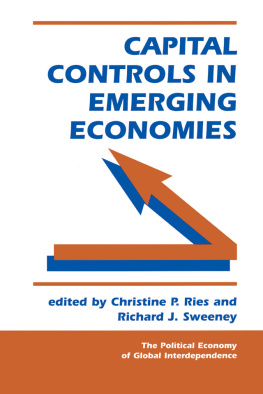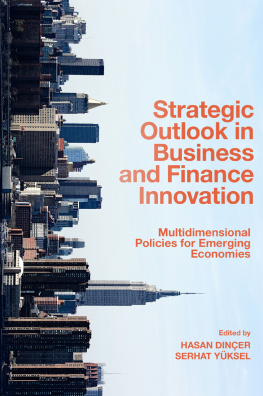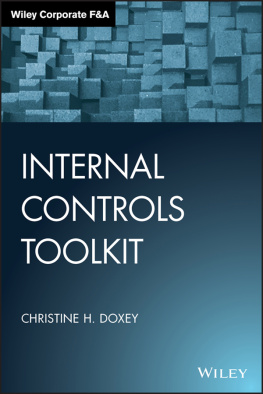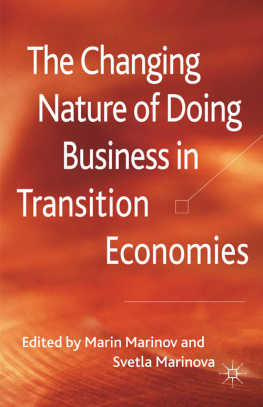Capital Controls in Emerging Economies
The Political Economy of Global Interdependence
Thomas D. Willett, Series Editor
Capital Controls in Emerging Economies, edited by Christine P. Ries and Richard J. Sweeney
Judging Economic Policy: Selected Writings of Gottfried Haberler, edited by Richard J. Sweeney, Edward Tower, and Thomas D. Willett
Political Capacity and Economic Behavior, edited by Marina Arbetman and Jacek Kugler
Interest Groups and Monetary Integration: The Political Economy of Exchange Regime Choice, Carsten Hefeker
Growth, Debt, and Politics: Economic Adjustment and the Political Performance of Developing Countries, Lewis W. Snider
Establishing Monetary Stability in Emerging Market Economies, edited by Thomas D. Willett, Richard C.K. Burdekin, Richard J. Sweeney, and Clas Wihlborg
Closure in International Politics: The Impact of Strategy, Blocs, and Empire, John A. Kroll
Toward a North American Community? Canada, the United States, and Mexico, edited by Donald Barry, with Mark O. Dickerson and James D. Gaisford
Seeking Common Ground: Canada-U.S. Trade Dispute Settlement Policies in the Nineties, Andrew D.M. Anderson
The Political Economy of European Monetary Unification, edited by Barry Eichengreen and Jeffry Frieden
Capital Controls in Emerging Economies
Edited By
Christine P. Ries and Richard J. Sweeney
The Political Economy of Global Interdependence
First published 1998 by Westview Press
Published 2018 by Routledge
711 Third Avenue, New York, NY 10017, USA
2 Park Square, Milton Park, Abingdon, Oxon OX14 4RN
Routledge is an imprint of the Taylor & Francis Group, an informa business
Copyright 1997 Taylor & Francis
All rights reserved. No part of this book may be reprinted or reproduced or utilised in any form or by any electronic, mechanical, or other means, now known or hereafter invented, including photocopying and recording, or in any information storage or retrieval system, without permission in writing from the publishers.
Notice:
Product or corporate names may be trademarks or registered trademarks, and are used only for identification and explanation without intent to infringe.
Library of Congress Cataloging-in-Publication Data
Capital controls in emerging economies / edited by Christine P. Ries
and Richard J. Sweeney.
p. cm. (The political economy of global interdependence:
174)
Includes bibliographical references (p. ).
ISBN 0-8133-3655-4
1. Capital movements. 2. Monetary policy. 3. Capital market.
4. CorporationsFinance. I. Hekman, Christine Ries, 1947 .
II. Sweeney, Richard J. (Richard James), 1944 . III. Series.
HG3891.C357 1997
332.'041dc21 97-18280
CIP
ISBN 13: 978-0-8133-3655-8 (pbk)
This book is dedicated to my mother, Etta Lillian Bergmann Ries, with deepest gratitude for her love and support.
This book is dedicated to my parents, John and Catherine Sweeney, with love.
Contents
Christine P. Ries
John Williamson
Manuel Guitin
Clas Wihlborg and Kalman Dezseri
Richard J Sweeney
David G. Dickinson and Andrew W. Mullineux
Christine P. Ries
Clas Wihlborg and Thomas D. Willett
Michael Dooley
As this book comes to print, we find that the issues discussed here and the combination of approaches used are more generally applicable than we had imagined. When we began the project from which this book derives, we were very intrigued with events taking place in Central and Eastern Europe and the Soviet Union. We realized that the challenges confronted and the dynamics to be played out by the peoples of this region were outside the realms both of our experience and of the historical record. As a result, we were forced to adopt an improvisational approach to the design of our research. As we realized additional complexities in the situation that we studied and the situation itself evolved, we reached out to involve representatives of other disciplines in our work.
As this summary of our work is drawn, we realize that the approaches we developed in this study are applicable to a broad range of seemingly unrelated economic, social and political problems. These approaches stimulate new approaches and new partnerships as we consider problems of policy in emerging markets for new technologies in developed and developing countries alike.
The underlying questions addressed in this book are two. First, what are the effects of government intervention in a private market when the institutions that support that market are in the early stages of development? Second, how might such intervention be used in concert with other policies to promote the objective of economic development?
Debates about the consequences of government intervention in private markets have been longstanding. Since the questions are so broad and the unintended consequences so pervasive, professionals and scholars have not been able to come to a single conclusion. Rather, we examine possibilities for government intervention situation by situation. The best we can do is to look for common elements in these situations and hope to derive answers for various categories of problems.
In this volume, we look at situations where a dramatic transformation of the political environment made existing institutions obsolete. Social and economic instability made the development of new institutions and networks in business and government essential. We found in these cases that government intervention was potentially much stronger and more pervasive than in situations we have traditionally studied. Further, such intervention was likely to have more permanent effects because it alters the structures of institutions as they form rather than after they are fully established.
As it happens, the elements of complexity and transformation that characterize the "emerging markets" of the formerly communist countries are present in the policy problems of more countries and in more situations than we had imagined. Given the extent of technological and social change that has stimulated demands for new policy around the world, this should not have surprised us. However, as we preface this volume, the single message we convey is that the approaches described in these chapters have relevance for challenges that reach far afield of the countries that informed our work.
For instance, the insights derived from the essays in this book have caused us to view problems of economic development in areas of both rural and urban poverty in the United States from completely new perspectives. When confronted with questions regarding appropriate legal and regulatory changes in the area of banking and financial services, we now rely on many of the useful constructs and connections that are described in these pages. This work has also caused us to be more critical and less accepting of traditional answers to long-standing policy dilemmas. As we were forced to confront questions of policy in situations where complexity and volatility were the bywords, we were forced into collaboration at the deepest levels of our disciplines. Our work has been truly interdisciplinary as well as multidisciplinary. We find ourselves more aware of the interdisciplinary aspects of almost all the problems we have faced since the completion of this research on emerging markets.











